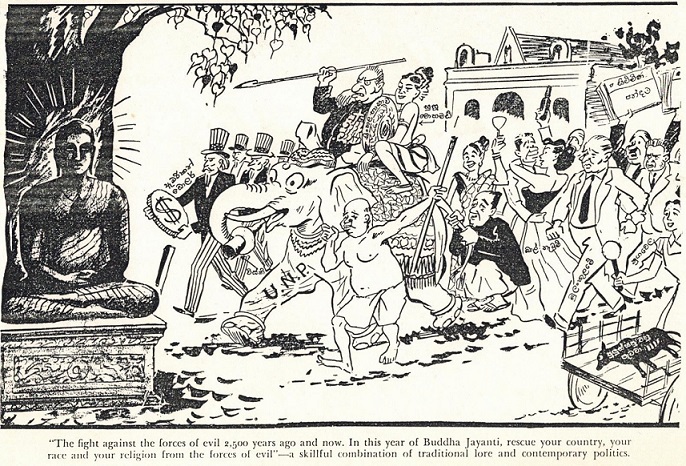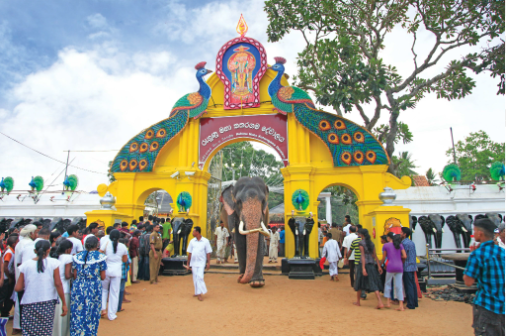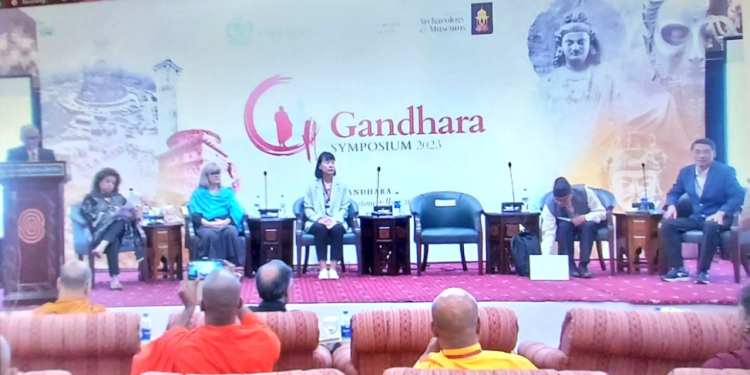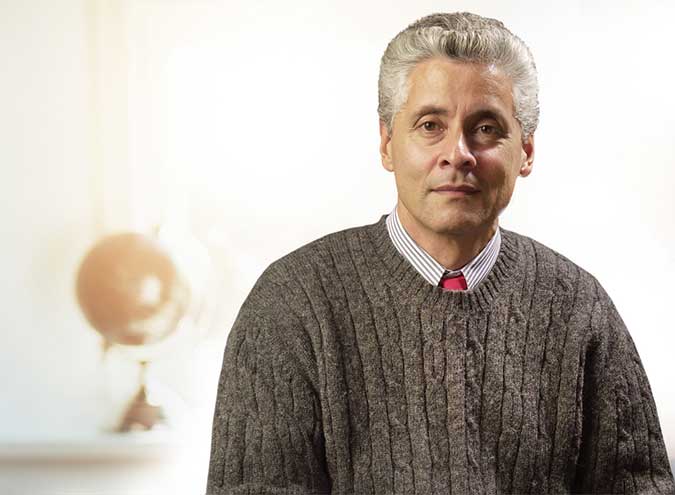Sri Lanka: The ‘Back Door’ for Indian Nationalists
July 17th, 2023Graham Shaw Courtesy blogs.lse.ac.uk
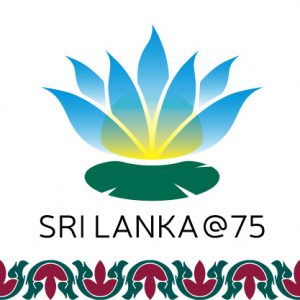
This fascinating post by Graham Shaw draws attention to the little known role that Sri Lanka (then Ceylon) played in the Indian National Movement by becoming a critical entry-point for nationalists and revolutionary literatures that would otherwise have found it impossible to enter India. A perfectly timed post as both countries mark the 75th anniversary of their independence from British colonial rule.
A little-known link between Sri Lanka (then Ceylon) and the Indian freedom struggle was its role in combating the elaborate censorship measures put in place by the British in India to keep the territories it controlled ‘sanitised’, and especially Communism-free. During the 1920s, the island proved a convenient ‘back-door’ for smuggling both ‘seditious’ literature and ‘dangerous’ persons into British India.
Two prominent figures in the Indian freedom struggle, the Bengali nationalist Manabendranath Roy (better known as M. N. Roy) and the crusading British journalist (and editor of The Bombay Chronicle) Benjamin Guy Horniman, both successfully exploited the Ceylonese ‘back-door’. Their stratagems are revealed in the British Library’s archive of ‘Indian Political Intelligence’ (IPI), a shadowy unit within the India Office in London charged with monitoring the activities of Indian nationalists and their sympathisers in Britain and continental Europe, working closely with the Intelligence Bureau in the Home Department of the British Government of India in New Delhi.
Roy, founder of the original Communist Party of India at Tashkent in 1920 and a leading figure in the Comintern, was relentlessly pursued across western Europe by IPI agents desperate to disrupt the production and circulation of his newspaper The Vanguard, first issued on 15 May 1922. In November that year, IPI reported that Roy had contacted Paul-Vaillant-Coutourier, a founding member of the French Communist Party, for assistance in smuggling copies of the newspaper and other nationalist literature from the port of Marseilles to the French enclave of Pondicherry (now Puduchery) on India’s Coromandel coast. Coutourier admitted that the French Communist Party had yet to establish lines of communication with reliable ‘comrades’ in Pondicherry, and therefore suggested that Roy make arrangements with Simon Sabiani, the ruthless Corsican Communist boss of Marseille’s Fourth Canton, a working-class area near the docks. Roy’s first thought had been to enlist Indian sailors (lascars) as couriers, but Coutourier informed him that very few ever visited Marseille; that the ships they served on usually only remained in port for a single night; and that they rarely left the docks to visit the city.
In the summer of 1923 Roy himself travelled to Marseille on a Mexican passport under the alias Roberto Allen to negotiate with Sabiani. He authorised Sabiani to spend up to 1,000 French francs a month to pay for the services of Italian Communists in smuggling literature aboard ships. The plan was to send one half of each consignment of The Vanguard in the weekly P&O mail-boats despite the risk, however small, that they might be seized by Customs on reaching British India. The other half of each consignment would be sent on the fortnightly French mail-boats owned by the well-known company Messageries Maritimes. Sabiani knew some of the crew aboard the French ships who were sympathetic to the Communist cause, but the chief advantage was that they sailed directly to Colombo or Rangoon (now Yangon) without calling at any British Indian port.
In September 1923 IPI reported that as many as 1,200 copies of The Vanguard were being sent via Messageries Maritimes vessels every two weeks. At Colombo, the mails bound for French India were unloaded without being inspected and reshipped to Pondicherry where, unlike at ports in British India, there was no legal provision for incoming mails to be subjected to examination by police or postal officers. Even if they suspected parcels might contain copies of The Vanguard, the French port officials had no powers to seize and destroy them. From Pondicherry, Roy’s newspaper and other Communist literature could easily be smuggled into British India on foot or on bicycle — Roy’s contact there, Ram Charan Lal Sharma, announced proudly that he had recently purchased two for that express purpose! Even though Ceylon was a British colony, there had been no cooperation between its colonial administration and that of India to control this mail route. The Colombo ‘back-door’ had not been closed — to Communist literature at least.
The repressive Rowlatt Act (passed by the Imperial Legislative Council of India in February 1919) unleashed a wave of protests led by Mahatma Gandhi. When rioting broke out in Bombay (now Mumbai) on 11 April, Governor Sir George Ambrose Lloyd declared that The Bombay Chronicle’s publication of Gandhi’s passive resistance manifesto had been a prime cause. Lloyd was determined to be rid of Horniman, its passionately pro-nationalist editor. Rather than put him on trial, Lloyd chose to deport him on 26 April under Defence of India (Consolidation) Rules of 1915, modelled on the British 1914 Defence of the Realm Act (DORA) sanctioning extra national security measures in wartime.
Back in Britain, Horniman campaigned vigorously for Indian independence, but was also determined to return to India. In December 1919, October 1920 and July 1921 he applied for a passport to India but each time was refused on advice from the Governor of Bombay Presidency. With the Indian DORA due to lapse at the end of August 1921, the British Indian Government passed the Passport (Entry into India) Act in 1920 under which anyone not possessing a passport valid for India could be denied entry. But issuing a passport for India to a British subject was the responsibility of the Passport Office (then part of the Foreign Office in London), not the India Office.
Horniman again applied in September 1921, May 1922, September 1923 and January 1924, and was still refused a passport for India after special intervention from the India Office, labelling him ‘a dangerous anti-Government agitator’. Campaigns mounted in support of Horniman’s return to India both in Britain and India itself met with no success. In March 1924 his case was raised in the House of Commons as a constitutional issue: that the indefinite penalisation of a British subject without trial or legal process was a grave infringement of personal liberty. Given Horniman’s profession, the ban was also seen as an attack on press freedom. Even the Secretary of State for India Lord Sidney Haldane Oliver felt there were insufficient grounds for a satisfactory defence of the ban in Parliament, but Viceroy Rufus Isaacs, 1st Marquess of Reading, insisted that the view of the local representative government (the Bombay Legislative Council) must be the paramount consideration.
After six years of refusals, the exasperated Horniman changed tack. On 13 October 1925 he successfully applied on health grounds for a passport to travel to France. In Paris he learnt that his passport was valid for entry to all French possessions (including Pondicherry). To his surprise, the British Consulate in Paris informed him that no special endorsement was needed to visit Ceylon, or any other part of the British Empire — except India.
On 19 December, Horniman left Marseille for Colombo on the S.S. d’Artagnan belonging to Messageries Maritimes. While on board, Horniman was informed there were no ships sailing from Colombo to Pondicherry; he would have to travel there by train. At Colombo, the police at first refused him disembarkation but when he challenged the decision he was reluctantly allowed to land. Fearing possible arrest, he immediately took the train north to Talaimannar. From there he boarded the ferry across to Dhanushkodi at the tip of the Indian peninsula extending out to Adam’s Bridge (now Rama’s Bridge/Rama Setu). As at Colombo, on the Indian side police initially denied him right of disembarkation and informed him that he would have to take the ferry back to Colombo. With a strong police guard on board there was no chance of escaping. But after consultation with senior officials the police had no choice but to let him land.
Horniman was home free in British India. His initial plan to enter via French India had proved unnecessary because of a loophole in the 1920 Passport (Entry into India) Act. That legislation only sanctioned the removal of persons without a valid passport who had entered India overland via Chaman in Baluchistan or the Khyber Pass, or directly by sea but not via a port in Ceylon, an exemption included to meet the needs of Indian estate labourers travelling regularly between India and Ceylon at the time.
The news of Horniman’s return to British India caused consternation in the India Office. There was nothing that could be done: he could not be prosecuted under the 1920 Indian Passport Act as it stood, and it could not be amended retrospectively to apply in his case. While a blame game played out between government departments in Britain, India and Ceylon, Horniman was back at the heart of Bombay journalism — thanks to the ‘back-door’ provided by Ceylon.
*
NOTE: Geographical names have been rendered in their historic spellings of the period; modern names have been indicated at the first instance.
The views expressed here are those of the author and do not represent the views of the ‘South Asia @ LSE’ blog, the LSE South Asia Centre or the London School of Economics and Political Science. Please click here for our Comments Policy.
This blogpost may not be reposted by anyone without prior written consent of LSE South Asia Centre; please e-mail southasia@lse.ac.uk for permission.




